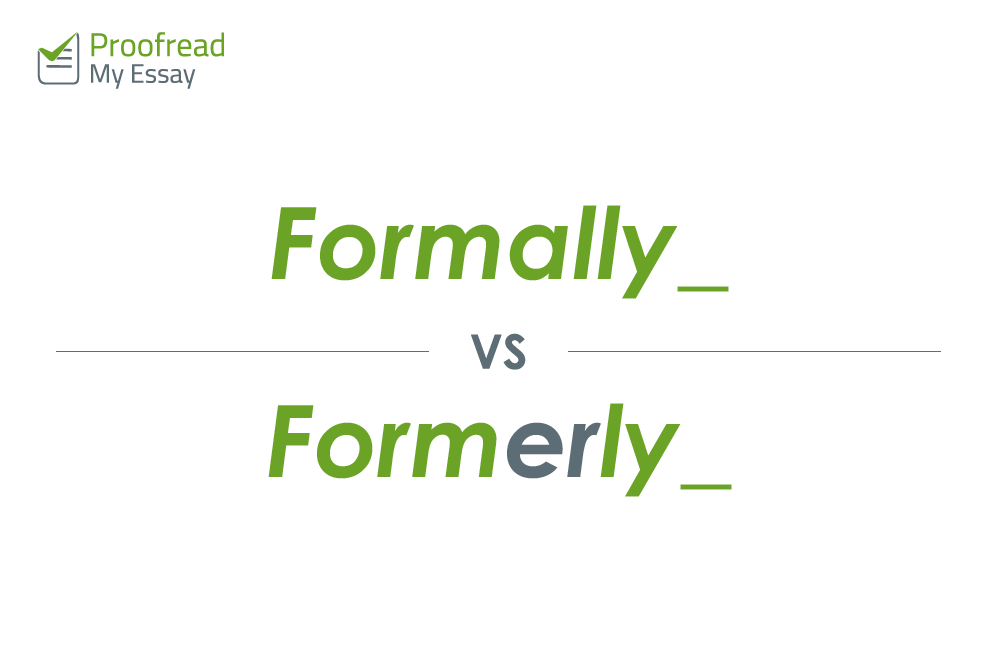And so we return to Homonym Corner, where we untangle two terms that sound similar while differing completely in meaning. Today, we look at ‘formally’ and ‘formerly’.
In addition to sounding similar, these adverbs start and end with the same letters. But despite this, you wouldn’t want to confuse ‘formally’ and ‘formerly’ in your written work.
Formally (In Accordance with Convention)
The term ‘formally’ means ‘in accordance with convention’. As such we’d use it in sentences like:
She was dressed formally for the ceremony.
Using slang is not formally correct in academic writing.
It can also mean ‘officially’, so we might say:
He was formally appointed to the CEO role.
And finally, ‘formally’ can be used when referring to something’s structure:
Pulp Fiction is a formally-complex take on genre cinema.
In all cases, ‘formally’ refers to something’s form (structure) or being formal (official or customary).
Find this useful?
Subscribe to our newsletter and get writing tips from our editors straight to your inbox.

Formerly (In the Past)
‘Formerly’ is the adverb version of ‘former’, which means ‘previous’. As such, we use this term when describing something as having been or having happened in the past:
Before Motorhead, Lemmy was formerly a member of Hawkwind.
Paul, formerly a philosophy student, now busks for a living.
The ‘form-’ in ‘formerly’ comes from an Old English word meaning ‘first’, so it doesn’t have any connection to ‘form’ or ‘formality’ in the sense of structure or convention.

Formally or Formerly?
As you can see, there’s a big difference between something being ‘formally’ (i.e. officially) and ‘formerly’ (i.e. no longer) true. As such, make sure you only use the word ‘formally’ when referring to something’s form or an accepted convention.
‘Formerly’, meanwhile, should only be used when referring to something that happened in the past or that no longer applies. Remember:
Formally = Officially or in accordance with convention
Formerly = Previously or in the past



